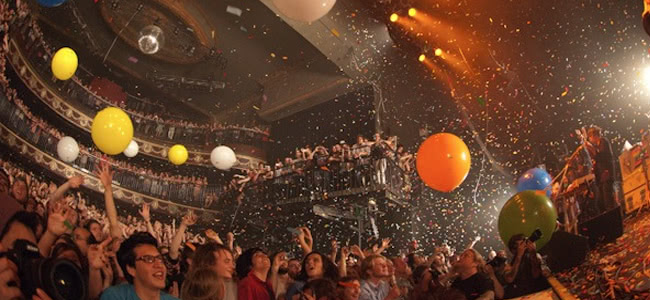Melbourne’s iconic Palace Theatre has been sitting silent since the final gigs at the Bourke Street venue were hosted a month ago, its interior stripped of “everything not nailed down” as part of a $5 million sale.
While it sits at the top-end of Bourke Street as a reminder of the great loss to Melbourne’s live music scene, property developer Jishan Investment’s plans to raze the Palace in order to construct a five-star luxury hotel complex have been rejected over and over again.
Now a white knight developer is reportedly in discussions with the Victorian Government to buy the historic music venue off Jishan Investments, and restore it as a live music venue.
Music Victoria’s chief executive Patrick Donovan made the claim on Tuesday during a Melbourne City Council meeting to decide whether the historic theatre should receive heritage protection from the city. “It could be the white knight,” Mr Donovan said according to The Age, revealing that the company behind the offer had previously restored theatres in the United States and United Kingdom.
Jinshan Investments have been wanting on approval from City Of Melbourne council for a proposal to demolish the CBD venue in order to erect a luxury $180 million, multi-storey hotel and apartment complex, which has faced vehement opposition by live music supporters and musicians, spearheaded by the Save The Palace and Melbourne Heritage Action group, in a drawn-out battle over the survival of the Palace and its nearly 100 year long legacy.
The Melbourne planning committee had previously advised the council to rejection of the W Hotel proposal, and earlier this year a Future Melbourne committee meeting at Melbourne’s Town Hall saw angry live music supporters squaring off against representatives of the luxury hotel project, “hissing and snorting” as W Hotel spokespeople gave presentations about the residential development – who have previously said razing the theatre is a “natural evolution.”
Razing the theatre however has just got a little harder for Jishan Investments, as the Melbourne City Council last night narrowly voted to endorse a heritage significance assessment of the site by November, opening the door to possible local heritage protection of the 1912 Edwardian theatre.
Lord Mayor Robert Doyle voted against the motion, which was brought by Greens councillor Rohan Leppert, despite excused himself earlier this year from the council meeting when the $180 million project was raised, citing an indirect conflict of interest because his former right-hand man is working as a lobbyist for the hotel and apartment development.
Alister Paterson, the Lord Mayor’s former chief-of-staff, is a consultant on the CBD hotel complex proposal and is actively lobbying for the development.
The Lord Mayor condemned the move to add heritage protection to the theatre, arguing that adding an overlay now would “change the goalposts” on Jishan Investments. He was also essdpecially critical of State Planning Minster Matthew Guy who abruptly enforces mandatory height limits in the precinct after the proposal for the hotel was submitted.
Final approval falls to Matthew Guy, who has held his line that Jinshan Investments were “dreaming” if they though their submissions would be approved in their current form. “It is too tall, it is in the wrong location,” said the Minister in early July.
The end of the Palace as a live music venue has not only outraged protestors, but also many figures of the Australian music industry. “It’s the only venue of its kind between 1,400 and 2,500 [capacity] in Melbourne,” Soundwave Touring’s Chris O’Brien pointed out to Tone Deaf in April, adding that its removal from Melbourne “will have a massive effect on the touring scene in Australia.”
Ian ‘Molly’ Meldrum, who hosted the last ever Anyway club night at the Palace (nearly 30 years after he first helped launch the site as the Metro nightclub in 1987) also lamented the loss of “one of the best live music venues in the world,” back in May. His sentiments shared by Jon George of RÜFÜS, the last live act to play The Palace in a three-night run in May, who called it “a big loss for Melbourne’s live scene… It’s the musical equivalent of knocking down one of the most well loved sporting grounds in the country.”




































